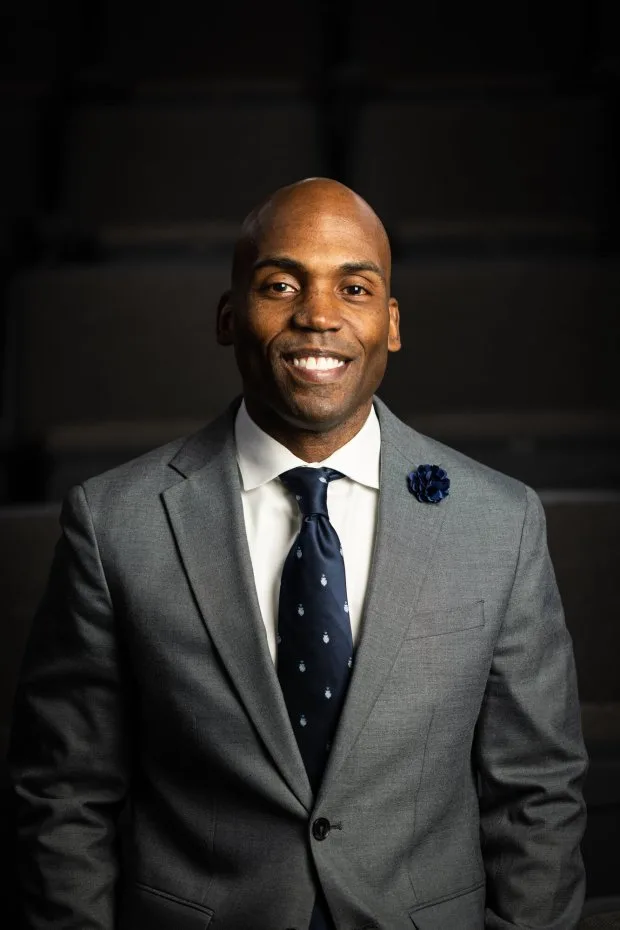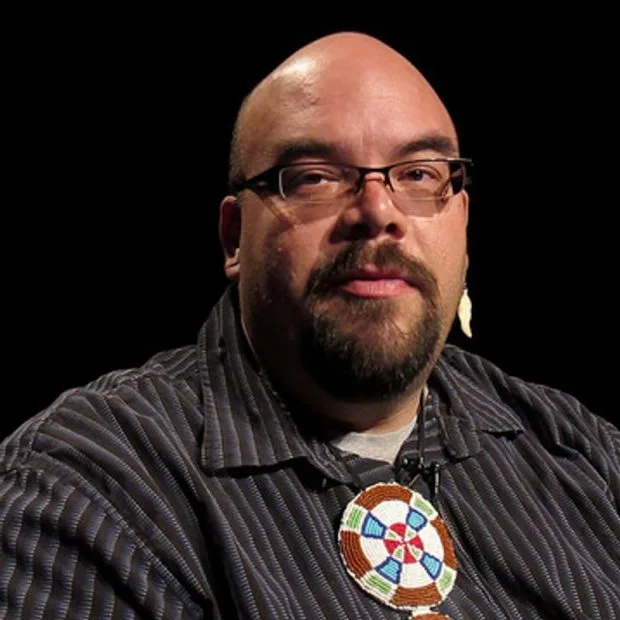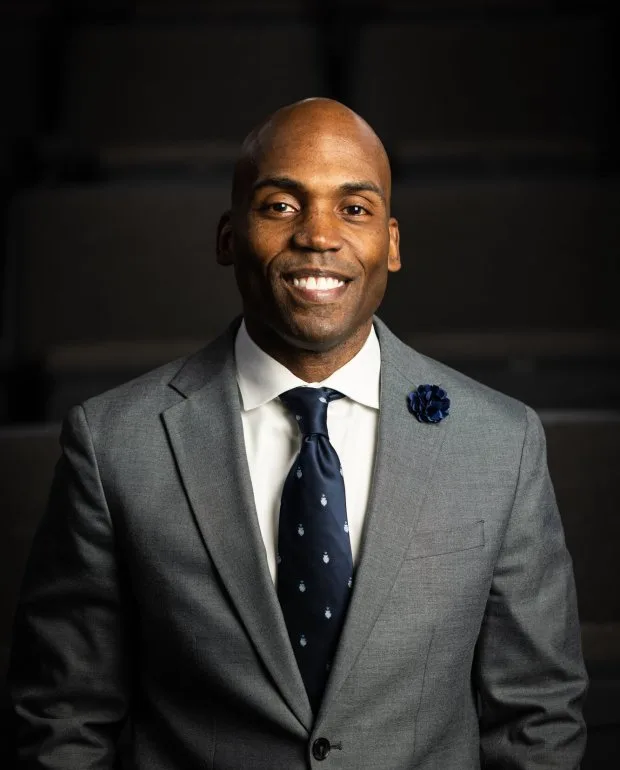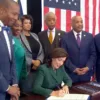When historian Yohuru Williams became co-chair of the St. Paul Recovery Act Reparations Committee in 2021, he took a deep dive into Minnesota’s history of racial injustices.
“Coming here from the East Coast, I really wanted to make sure I came up to speed on the history of this region,” he said.

The reparations committee Williams served on was focused on American descendants of chattel slavery. Yet, the more history Williams read, the more he felt that it was wrong to have a conversation about reparations without acknowledging the history of American Indians in Minnesota.
The Rev. Jim Bear Jacobs, a member of the Stockbridge-Munsee Mohican Nation, has been working for reparations for Indigenous people for many years. His most recent effort is an initiative to heal relationships between American Indians and non-American Indians through story-telling.
Jacobs and Williams met through Minnesota Council of Churches’ 10-year “Truth and Reparations” project in 2021 and have been in dialogue about reparations ever since.
Williams and Jacobs sat down with the Pioneer Press earlier this week for a conversation about racial reparations in the Black and American Indian communities in Minnesota. The following interview is edited for clarity and conciseness.
Q: What kind of conversations have you been having about reparations lately?
Jim Bear Jacobs: As a pastor, I approach reparations from a theological foundation. My work is to remind Christian churches that the very language they use out of holy Scriptures speaks entirely of ceasing and repairing harm. Minnesota became a state in 1858. There’s been a white colonial presence here since about the 1820s. A number of these congregations that I speak at are over 160 years old, which means that the forefathers of white supremacy were sitting in those pews every Sunday. A number of these churches essentially were the chaplains for white supremacy as it was being built in Minnesota, and there has to be accountability for that. That is an abomination of the very Gospel that all of these churches claim to follow.
Yohuru Williams: Conversations about reparations in the African American community have been ongoing for many years. But recently it’s been an obsession of mine to see how the conversation about reparations with regard to African Americans can be wedded to a larger conversation about reparations for Indigenous persons. There’s this dual harm that is inflicted by white supremacy and I’ve been thinking about the ways that we can address that in tandem.
Q: It seems like most of the conversations lately in St. Paul around racial reparations have been focused on American descendants of chattel slavery (ADOCS). Tell me more about how you see reparations for ADOCS and American Indians as the same project.

JBJ: In the Twin Cities, there is a long legacy of racial justice work both within the American Indian community and the African American community. But those actions have always been siloed; you had Black folks and American Indian folks working for their own people. But separating those conversations can play into the mindset of white supremacy, or the belief that both of our groups are in competition with each other for limited resources. Who wins in that type of argument? It’s the colonizer: white supremacy itself. By having these conversations together, we are coming together and deciding we’re not going to believe in this scarcity mindset, we’re going to believe in abundance. I used to think these conversations always had to be separate, but the past 10 years have opened my eyes and changed that.
Q: What happened in the last 10 years that changed your approach to reparations?
JBJ: After Jamar Clark was killed, there was the occupation of the 4th Precinct in Minneapolis. That occupation was very uniquely a Black space. But every single night of that occupation, you could hear the Native American drums and smell the smoke from the smudging. And then in 2016, out on the Standing Rock Reservation, Native Americans were standing in defiance against a threatening force. One day at Standing Rock, different chapters of Black Lives Matter from around the country marched in solidarity and came down into the camp along the Cannonball River. I was weeping as it happened, it felt like such a moment. What’s beautiful about the young generation right now is that they only know a struggle that’s unified. But it’s really been in the last 20 years that I’ve seen this kind of solidarity.
Q: What does reparations mean in the 21st Century?
YW: The definition of reparations that I think probably will resonate most with people is how it’s applied to war. Reparations are compensation for damages that have been suffered as a result of belligerent acts. I think in Minnesota, everyone should go on the sacred heritage tour that Reverend Jacobs leads because it’ll anchor you in that history, and you will understand the harm. You will understand reparations is a response to injury, not charity. It’s one of those things that if you’re not anchored in that history, it’s harder for people to understand exactly what Reverend Jacobs was describing: those folks who push through the policies which hurt Black people in Minnesota were the same people who sat in the churches that signed off on policies that contributed to the extermination of Indigenous people.
JBJ: Particularly in the wake of George Floyd’s murder, a lot of churches were ready to do action right away. They labeled that action ‘reparations,’ but that’s not how I would label it. I saw a lot of charity. Churches are great at charity, but charity cannot be reparations. Because you can do charity all day long and never once think about the imbalances in power within these systems. My own personal definition is that reparations must relinquish power and it must address the systemic imbalance. If you’re not putting your own self-preservation at risk, you’re just doing charity. People don’t like to hear this, but reparations are going to be painful for the oppressor. I often call for churches to give their land back. And not just as a last dying breath of justice when the congregation only has four people left. I ask them to give their land back when they’re a thriving congregation. That’s risk, and that’s releasing power. And hopefully, they have a good relationship with Indigenous organizations (that) will allow them to still worship in that space.
Q: Is it worth our time to discuss the definition of reparations before we start doing that work? Or is the work too urgent?
JBJ: I think it’s both. Is the action so vital that we need boots on the ground right now? Absolutely. Unarmed Black people are being killed by police. You start going into outstate Minnesota, and there’s the epidemic of missing and murdered Indigenous women. I mean, the problem is so insurmountable that yes, we need action right now. But I think when we speak of reparations, theological or otherwise, definitions are important.
Q: There’s been some resistance within both the Black and Indigenous community about combining efforts to demand reparations. Where do you think that’s rooted?
JBJ: I’ve heard from people in my community say in the past few years “Well if Black people want reparations, they have to get in line behind us Indians. We were here first.” And on the flip side, I’ve heard Black people say “Why are you trying to hitch your wagon to us? You already got your reparations with reservations and government checks.” There are all these racial stereotypes that BIPOC people themselves aren’t immune to. I think those are the scars of doing reparations work in isolation in a white supremacist society.
YW: There’s some misplaced anger, fear and anxiety. People are worried they are going to be left out. That’s why some people see the conversation about reparations as only a conversation about ADOCS, and if we get justice for Black people then we can focus on reparations for other folks. And while I appreciate that, I don’t want an unfinished revolution. If we don’t wed these two conversations, we’re just going to find ourselves in this endless loop. The Indigenous and the Black experience can’t be disentangled; you could reduce all of American history to stolen land and free labor. Our country’s wealth is bound up in these two moments of historical trauma and robbery, which have an afterlife.



